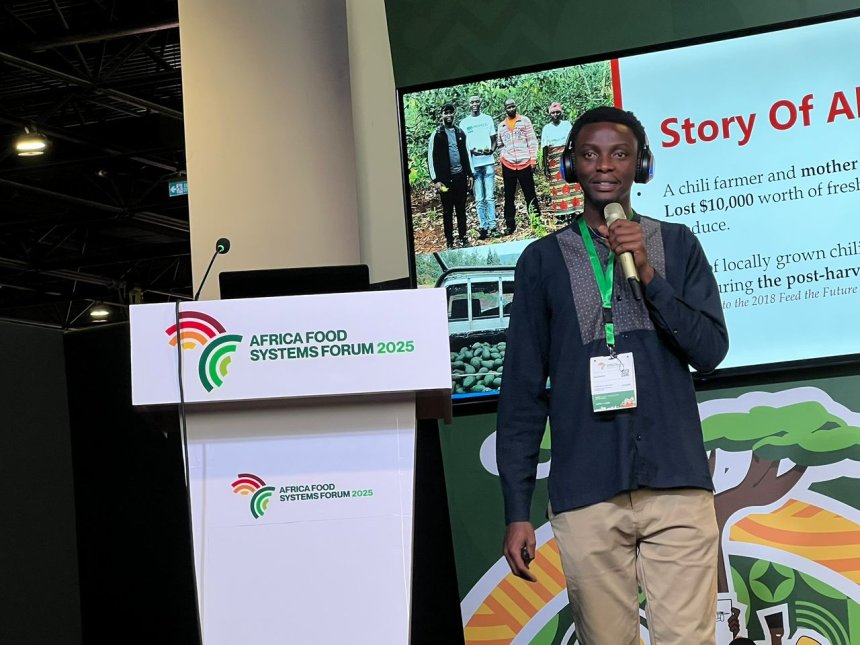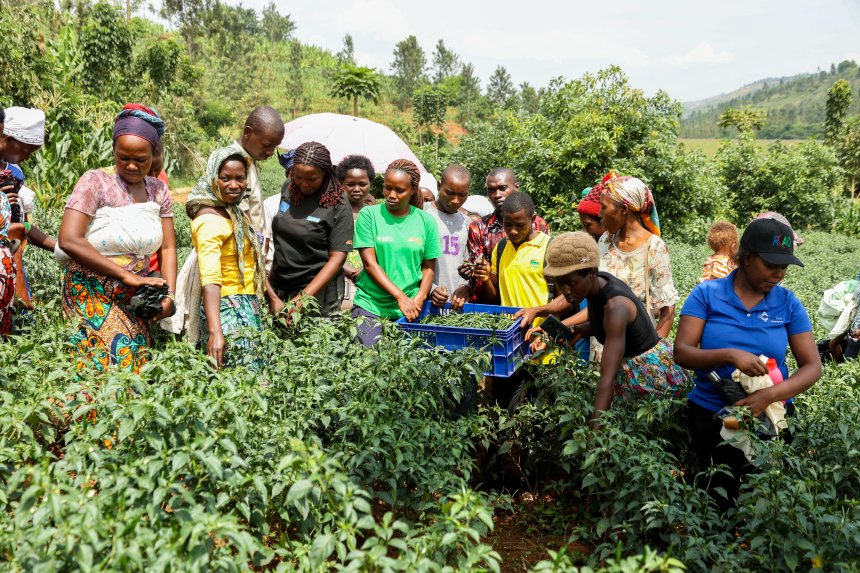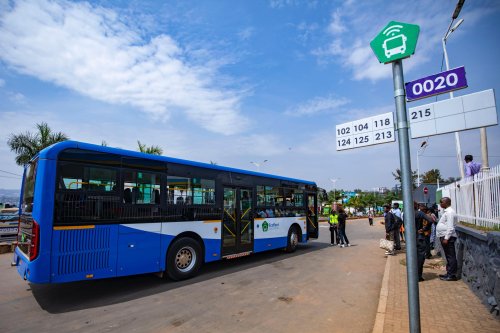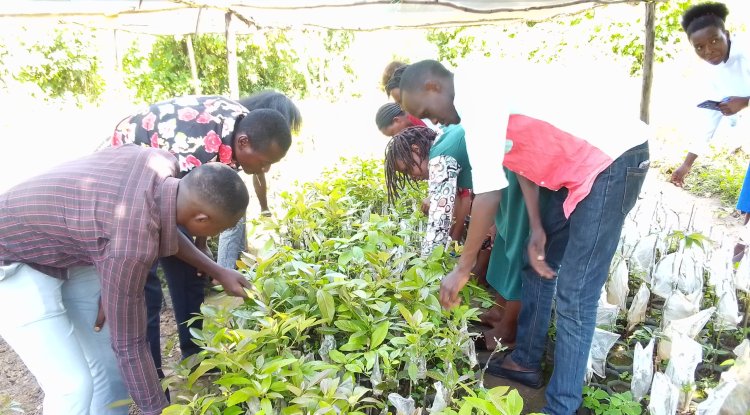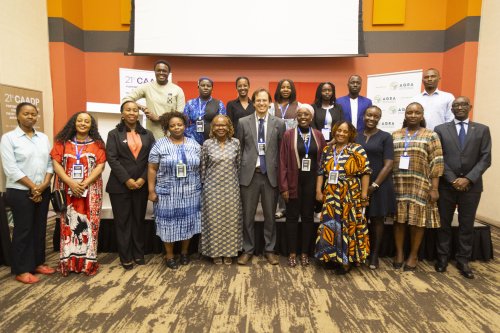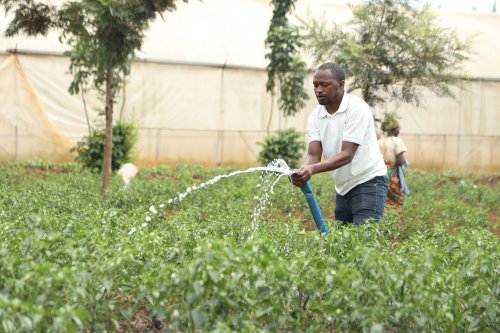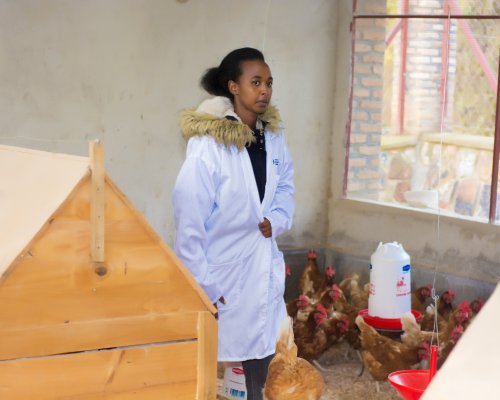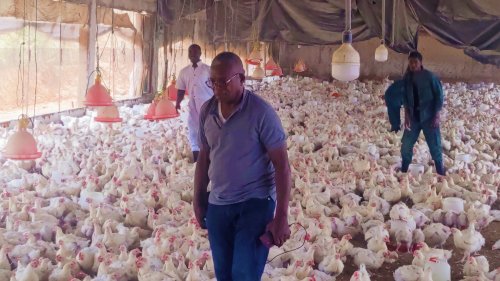Time to co-create innovative solutions for Africa’s Agri-Food Systems
As the world gathers in Yokohama for the Ninth Tokyo International Conference on African Development (TICAD 9), Africa arrives not with empty hands but with a bold promise: to reshape its food systems in ways that secure dignity, prosperity, and resilience for generations to come.
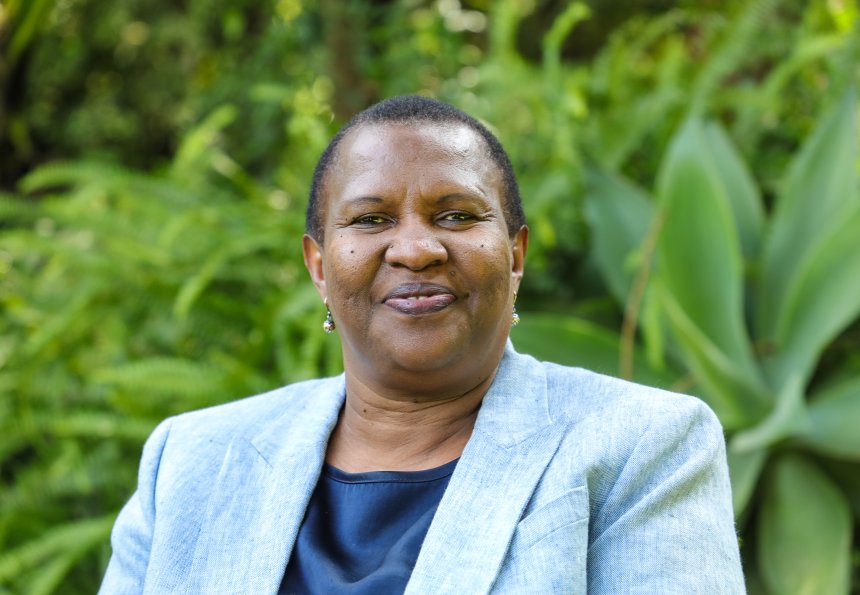
The theme of this year’s forum, “Co-create Innovative Solutions with Africa,” could not be more timely. Our continent’s food systems stand at a crossroads. We can seize this moment to build resilience and unlock transformation, or we can resign ourselves to a future of deepening food insecurity, growing import bills, and missed opportunities. The latest SOFI report shows hunger levels falling globally to 673 million people (one in 12) for the first time since 2019. Unfortunately, Africa bucks this trend, with 307 million people affected, representing over 20% of our population, or one in five. The choice before us is stark, but so too is the opportunity.
Japan has long been a trusted partner in this journey, and our collaboration already shows what is possible. In 2008, AGRA joined hands with Japan’s Ministry of Agriculture, Forestry and Fisheries (MAFF), the Japan International Cooperation Agency (JICA), and a wide network of African and international partners to launch the Coalition for African Rice Development (CARD). AGRA plays a critical role in hosting CARD and the goal remains simple yet ambitious: to double rice production in Sub-Saharan Africa by 2030.
Why rice? Because for millions of African families, rice is not just another crop. It is the meal that fills the pot at night, the comfort food that binds communities, the difference between children going to bed hungry or nourished. Yet by 2023, Africa’s self-sufficiency in rice had fallen to just 54 percent, forcing us to rely on expensive imports that drain scarce foreign exchange.
Against this backdrop, the progress made by CARD is nothing short of remarkable. In its first decade alone, rice production doubled from 14 million tons in 2008 to 28 million tons in 2018. By 2023, output had climbed further to 36.6 million tons. That is not an abstract statistic. It is food on family tables. It is income in the hands of farmers.
Now CARD has set its sights on 56 million tons by 2030. This target is bold, but it is achievable, and it matters. It means stronger rural economies, greater food sovereignty, and more jobs for Africa’s youth. It also means less dependence on imports, insulating our continent from the shocks of volatile global markets.
As CARD prepares for its 10th General Meeting in Madagascar this October, we are sharpening our focus on regional leadership and mobilizing resources from both development partners and the private sector. Japan has shown the way, not only with rhetoric but with real action. Just days ago, JICA issued a $155 million bond to spur new investments in Africa’s agriculture. That is partnership made tangible.
But rice is only part of the story. Across the continent, a wave of innovation is redefining African agriculture. Young entrepreneurs are building digital platforms that connect farmers to markets, while agri-tech start-ups are devising tools to boost productivity and efficiency. With support for 11 youth-led companies, AGRA is demonstrating how innovation can create jobs, fuel entrepreneurship, and give young Africans a stake in feeding their continent.
We are also tackling the twin threats of climate change and malnutrition head on. With the support of the Green Climate Fund, AGRA is working with governments to promote soil health, regenerative agriculture, and nutrition-sensitive farming. These practices are not just environmentally sound, they are essential for protecting Africa’s future and ensuring that progress in agriculture also means progress in human health.
At TICAD 9, we are not only here to share what Africa is doing. We are here to call for greater collaboration and to deepen partnerships. We want to see more Japanese companies bring their world-class technologies in agri-tech, irrigation, and biofuels to African markets. We want to see more concessional financing and innovative blended finance models that allow smallholder farmers and agricultural SMEs to thrive. And we want to reinforce our alignment with African priorities, from the Comprehensive African Agriculture Development Programme (CAADP) commitments to the African Continental Free Trade Area (AfCFTA), so that every step forward strengthens the continent’s own frameworks.
Africa’s challenges are undeniable. But so too are its possibilities. With Japan’s technological expertise and Africa’s vast agricultural potential, we can build a food system that feeds the continent, protects the planet, and powers growth. The only ingredient still in short supply is urgency.
TICAD 9 is a chance to turn ambition into action, to co-create a food-secure and climate-resilient Africa, and to do so now, before the cost of inaction is counted in hunger, instability, and lost opportunity. This year’s TICAD 9 will focus on how Africa and Japan can co-create practical solutions drawing on Africa’s resources and youth potential alongside Japanese innovation, across three urgent priorities: building resilient societies, securing peace and stability, and driving shared economic growth.
The path forward is clear. Let us choose action, and choose to do it now.
Ms. Ruhweza is the President of AGRA, an African-led organization that is focused on putting farmers at the centre of the continent’s growing economy.

